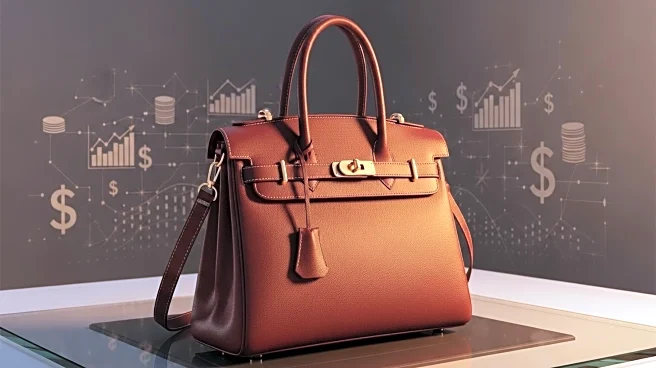What's Happening?
Hermès has demonstrated resilience during economic slowdowns by maintaining its commitment to quality and exclusivity. The brand's financial strategy focuses on long-term value, prioritizing quality over volume and maintaining premium pricing. Hermès' approach during the 2008 financial crisis serves as a model for luxury brands, emphasizing the importance of preserving brand integrity and exclusivity. By staying true to its values, Hermès has successfully navigated market shifts and built a legacy of profitability and craftsmanship.
Why It's Important?
Hermès' ability to thrive during economic downturns highlights its strategic focus on long-term value and exclusivity. The brand's approach attracts ultra-wealthy clientele who view luxury goods as stable investments, ensuring financial stability and growth. Hermès' success in preserving value and demand sets it apart from competitors, reinforcing its position as a leader in the luxury market. The brand's resilience serves as a case study in strategic discipline, emphasizing the importance of maintaining brand integrity and exclusivity.
What's Next?
Hermès plans to continue expanding its production capacity and investing in artisanal excellence, with new workshops and training programs. The brand aims to deepen its commitment to sustainability, with ambitious targets for supply chain certification and emissions reduction. Hermès' strategic focus on exclusivity and craftsmanship will guide its growth agenda, ensuring continued success in the luxury market.
Beyond the Headlines
Hermès' approach highlights the importance of maintaining brand integrity and exclusivity in a rapidly changing market. By prioritizing long-term value and ethical innovation, Hermès sets a standard for responsible growth in the luxury industry. The brand's commitment to craftsmanship and sustainability not only enhances its market position but also contributes to broader cultural and environmental goals.










